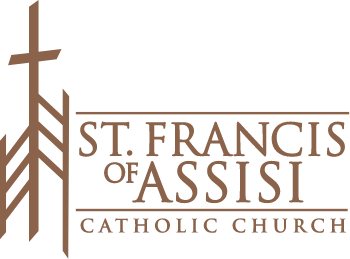During these weeks of the liturgical Christmas season, we get caught up in the ‘hustle and bustle’ of shopping, work parties, family parties, and the like. Recently, I made a short trip to Walmart to gather some items. As I checked out, collected my receipt, and walked away, the attendant offered me a cheerful “Happy holidays” before I made my final approach toward the exit. It was innocent enough, a pleasant gesture to patrons as they made their way out of the store, keeping consumers at ease as they made their way through the machine of convenient commerce. However, it led me to think, what holiday was she referring to?
I, of course, knew what she meant, and caught up in the ‘hustle and bustle’ myself, I wished her the same with a simple “you too” and a smile. But it did not keep my mind from scrolling through the possibilities of what she could have meant as I made my way through the accumulation of shoppers to my car. Was she referring to the liturgical season of Advent, which marks a period of preparation for the coming of our Savior and culminates on Christmas day, celebrated on December 25th, to commemorate the nativity of our Lord Jesus Christ? Was she referring to Hanukkah or, perhaps, a pagan celebration of the winter solstice? Or was she referring to the roughly month-long secular “holiday” of consumerism, which begins with an all-out brawl for ‘the best deal’ after Thanksgiving and concludes once the wrapping paper is thrown in the trash in December? In my frustration of working through the crowded store, I couldn’t help but think cynically, God forgive me.
Presumably, she celebrates Christmas. Was she required to say “Happy Holidays” in place of “Merry” or “Happy Christmas?” Perhaps she was forced to give the generic salutation to avoid misplaced and unintended offense. But I was offended. Not by her, of course; she meant nothing by it. Instead, I was offended by our culture on two counts. I was first offended by our highly consumerist culture, which has replaced the adoration of Christ on Christmas day with the adoration of shiny things, our own ‘golden calves.’ Worse yet, we encourage our children to wake on the most blessed morning of Christmas, not with the anticipation of the coming of Christ into the world, but with the anticipation of those shiny things. Second, I was offended by our society’s avoidance of the name of Christ. Have we become so afraid of persecution that we show no resolve to uphold the most holy title of Jesus? Which is to say, Christ, which means Savior, when we say Merry Christ-mass?
As I continued toward my car, my head drooped out of sorrow for a culture that seems to have fallen so far away from the meaning of Christmas. A culture that no longer chooses to recognize the God who entered into the world to save His fallen creatures from their sin by taking that sin upon himself. As I continued toward my car, my sorrow turned to shame as I reflected on how I had contributed to that culture. Only moments ago, I was caught up in the ‘hustle and bustle’ of consumerism, frustrated with my neighbors who flooded the store, inhibiting my shopping and quick exit; how I mindlessly toiled through the self-checkout, devoid of personal interaction, and instead of taking a moment to remember Christ by saying “Merry Christmas,” how I had said “you too” in reply. But, as I finally approached my car at the end of the parking lot, I was filled with joy and hope because Christ was coming, not in spite of my sins, but because of my sins. So as this liturgical season continues, do what you can to keep Christ in Christmas, but do not fall into sorrow or despair because Christ has come.
Matthew Weller – SFA Theologians Guild Member

